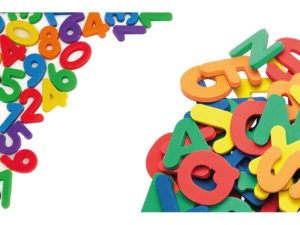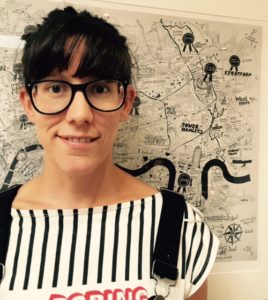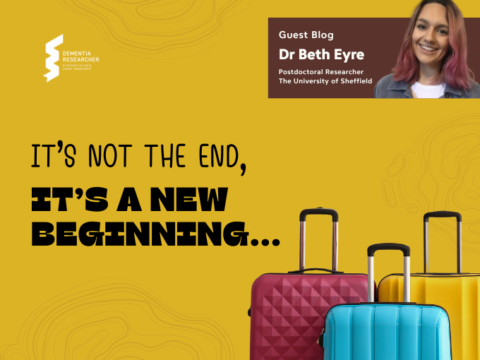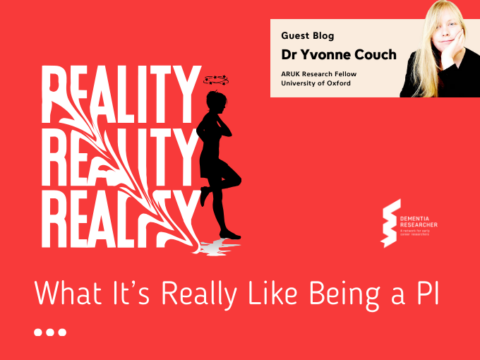 The average literacy level in the UK is extremely low. Additionally, communication difficulties are one of the most common issues for people living with dementia. Yet almost every consent form I have seen for a research study on dementia has been laden with small, compact, jargon laden text that is difficult for people to really follow. Researchers need to re-think this approach to consent in order to ensure individuals with dementia can access information and make an informed decision about participating in research. This may even lead to more people being able to make independent decisions to become involved in our work and generate a bigger pool of research participants in the long run.
The average literacy level in the UK is extremely low. Additionally, communication difficulties are one of the most common issues for people living with dementia. Yet almost every consent form I have seen for a research study on dementia has been laden with small, compact, jargon laden text that is difficult for people to really follow. Researchers need to re-think this approach to consent in order to ensure individuals with dementia can access information and make an informed decision about participating in research. This may even lead to more people being able to make independent decisions to become involved in our work and generate a bigger pool of research participants in the long run.
According to the adult literacy trust, around 16% of adults in the United Kingdom are illiterate and unable to read and write. A large number of others have low literacy levels, comparable to that required year 7 students. Even so, many information sheets given out by dementia researchers use technical vocabulary that almost requires readers to have a tertiary degree in the relevant field in order to understand the content.
One of the most common difficulties for people with dementia is difficulties following long, complex information. They report losing track of the ‘story’- this may be due to difficulties with memory, language, executive skills such as attention or other issues. This means that long sentences, using complex grammatical forms and abstract vocabulary may be difficult to understand. Both in spoken or written form. Technical language- jargon or medical terms, that is new and unfamiliar may be particularly difficult. It is not uncommon for information and consent forms to use such technical, even legalistic language. And researchers often use the same words in their spoken interactions.
 The NHS has published an accessible information standard that encourages the development of materials that make written information accessible for everyone. Inclusive communication ensures equitable access for people with and without communication difficulties and supports people in making decisions as it reduces the threshold of understanding to a level that is accessible to all. We cannot expect people with dementia and their families to have the same understanding of our research that we do. We need to work out what the relevant information is and convey this in a way that is quick and easy to follow, so that the person themselves only needs to focus on weighing up whether they really want to be involved in the research or not.
The NHS has published an accessible information standard that encourages the development of materials that make written information accessible for everyone. Inclusive communication ensures equitable access for people with and without communication difficulties and supports people in making decisions as it reduces the threshold of understanding to a level that is accessible to all. We cannot expect people with dementia and their families to have the same understanding of our research that we do. We need to work out what the relevant information is and convey this in a way that is quick and easy to follow, so that the person themselves only needs to focus on weighing up whether they really want to be involved in the research or not.
There is not a lot of research on how to create accessible information for everyone. Additionally, people with dementia are a heterogenous group with multiple areas of difficulty. There has been some work within the speech and language therapy discipline to try to identify some basic standards on producing accessible information- much of which comes from third sector and support groups who have advocated for the needs of people with communication difficulties. The following tips and hints comprise a minimum set of guidance for anyone attempting to produce an information or consent form for their study (Jayes et al, 2013):
- Use simple, everyday words and sentence structures.
- Use short sentences with one main idea per sentence.
- Use clear photographs to illustrate important single concepts.
- Use communication symbols if the reader is familiar with them.
- Use a sans serif font of at least size 14 point.
- Highlight important information using bold, headings and text boxes.
- Break up text using line spacing, bullet points, headings and white space.
- Involve the target audience in the creation of adapted information.
If nothing else I hope that any researchers reading this article take away the message in the final bullet point on this list – to involve the target audience in creating information sheets and consent forms. Involving users (patient and public involvement) is essential in research and co-developing the information and consent forms with this group is a useful way to moderate the content and ensure it is accessible and makes sense to non-expert individuals living with dementia.
Finally, don’t forget there are always colleagues with skills in this area who can provide expertise. Writing accessible and inclusive information is not as easy as it seems. Speech and language therapists are experts in communication and often have resources – relevant images, and alternative media that can support a person using multiple modalities to support understanding. Perhaps another brief action for all those researchers out there reading this could be to find their SLT colleagues and make contact, establish a collaboration and work together to support people to understand what they are consenting to. You never know, you may find more people express an interest in your work if they understand it.
Reference:
Jayes, M (2013) Chapter 5: Assessing mental capacity as a speech and language therapist: Guidance and resources to aid practice, In Volkmer, A. (2013) Dealing with Capacity and Other Legal Issues. Guildford: J&R Press.
Author
Anna Volkmer is a Speech and Language Therapist and NIHR Doctoral Research Fellow working in Language and Cognition, Department of Psychology and Language Sciences, University College London. Anna is researching Speech and language therapy interventions in language led dementia.

 Print This Post
Print This Post




